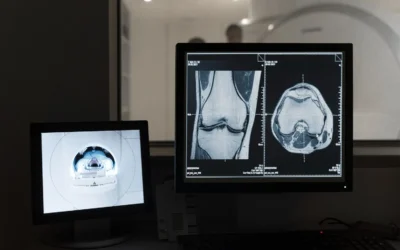Colorectal cancer, a highly preventable yet increasingly prevalent form of cancer, continues to rise among younger age groups in the United States. Despite its preventability, many individuals remain unaware of the significant role that lifestyle factors such as diet, exercise, and alcohol consumption play in influencing their risk for this disease. In this article, we delve into the findings of a recent survey commissioned by The Ohio State University Comprehensive Cancer Center – Arthur G. James Cancer Hospital and Richard J. Solove Research Institute (OSUCCC – James), shedding light on the lack of awareness surrounding colorectal cancer risk factors. Furthermore, we explore the importance of heightened awareness, particularly among minority groups who face increased susceptibility to this form of cancer, and emphasize the crucial role of early detection and lifestyle modifications in reducing colorectal cancer risk.
Table of Contents
Alcohol, Obesity, and Diet: Recognizing Key Risk Factors
A key revelation from the survey conducted by OSUCCC – James is the inadequate recognition of lifestyle factors contributing to colorectal cancer risk. While familial history is commonly acknowledged as a risk factor, the survey highlights a concerning lack of awareness regarding other significant contributors. For instance, less than half of respondents identified alcohol use as a risk factor, while a substantial portion remained unaware of the impact of physical inactivity and dietary habits characterized by high fat and processed foods. These findings underscore the necessity for comprehensive education regarding the multifaceted nature of colorectal cancer risk, beyond merely genetic predispositions.
Moreover, disparities in awareness were evident across demographic groups, with Black and Hispanic individuals exhibiting lower levels of knowledge compared to their white counterparts. Given the disproportionate burden of colorectal cancer borne by these communities, targeted efforts to enhance awareness and promote preventive measures are imperative. Increased awareness not only facilitates informed decision-making regarding screening and lifestyle modifications but also empowers individuals to advocate for their health within their communities.
Addressing Rising Incidence Among Younger Populations
Of particular concern is the escalating incidence of colorectal cancer among individuals under the age of 50, a trend observed over the past two decades. Despite this alarming trajectory, screening recommendations have historically targeted individuals aged 50 and above, potentially leaving younger adults vulnerable to undetected disease. The recent adjustment of screening guidelines to commence at age 45 by the U.S. Preventive Task Force reflects growing recognition of this shifting epidemiological landscape. However, proactive measures are warranted to ensure timely detection and intervention, given the propensity for colorectal cancer to manifest at earlier ages.
Dr. Matthew Kalady, Chief of Colorectal Surgery at OSUCCC – James, emphasizes the pivotal role of lifestyle modifications in mitigating colorectal cancer risk. Adopting a diet rich in fiber, low in fat, and abundant in fruits and vegetables not only supports weight management but also fosters an environment conducive to colorectal health. Furthermore, regular engagement in moderate exercise serves as a protective measure against obesity, a significant risk factor for colorectal cancer. By embracing these modifiable lifestyle behaviors, individuals can proactively safeguard their well-being and reduce their susceptibility to colorectal cancer.
Empowering Individuals through Awareness and Early Detection
While genetic predisposition undoubtedly influences colorectal cancer risk, Dr. Kalady underscores the importance of recognizing the broader spectrum of contributory factors. Heightened awareness enables individuals to make informed decisions regarding screening and empowers them to advocate for proactive measures conducive to colorectal health. Additionally, early detection remains paramount in achieving favorable outcomes, as colorectal cancer is highly treatable in its nascent stages. Prompt evaluation of concerning symptoms, such as rectal bleeding and unexplained changes in bowel habits, facilitates timely intervention and enhances the likelihood of curative treatment.
In conclusion, colorectal cancer represents a formidable yet largely preventable health challenge, underscored by the interplay of genetic predisposition and modifiable lifestyle factors. The findings of the OSUCCC – James survey underscore the imperative of comprehensive education and heightened awareness, particularly among underserved communities facing heightened susceptibility. By fostering a culture of proactive health management and prioritizing early detection through screening, we can collectively strive towards a future where colorectal cancer exerts diminished impact on individuals and communities alike.
Survey Methodology
The insights presented in this article are derived from a consumer survey conducted on behalf of The Ohio State University Comprehensive Cancer Center by SSRS. Data collection encompassed a nationally representative sample of 1,006 respondents aged 18 or older, spanning both web-based and telephone modalities. Survey administration occurred from Feb. 2-4, 2024, with a margin of error of +/- 3.5 percentage points at the 95% confidence level. Through meticulous weighting procedures, the survey outcomes are reflective of the broader U.S. adult population, facilitating informed analysis and actionable insights.





0 Comments